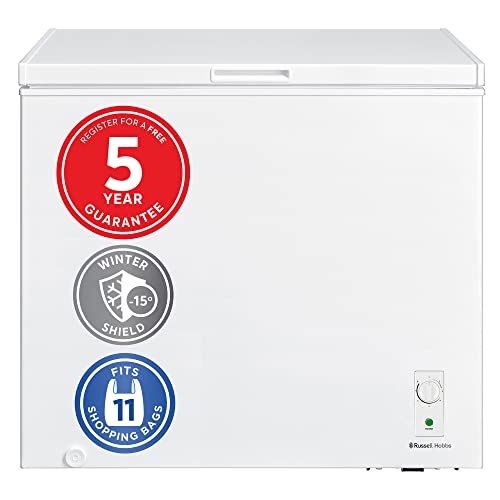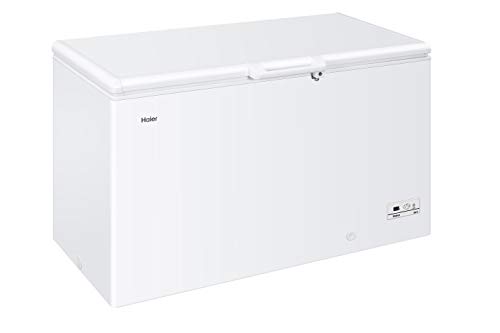This Week's Most Popular Stories About Fridges Fridges
페이지 정보
작성자 Rosaria 댓글 0건 조회 153회 작성일 24-02-04 02:53본문
 How to Keep Your Fridge Running Smoothly
How to Keep Your Fridge Running SmoothlyRefrigerators are available in different sizes and shapes. They can fit into tight spaces, including dorm rooms.
Certain models can be used with smart devices. You can monitor your fridge remotely, and troubleshoot problems in the event of an issue. You can also make use of voice commands to manage them.
Noise
Refrigerators can emit many different sounds while operating, and some are more obvious than others. If you notice any of the below sounds, determine its origin and search for a quick fix prior to calling a repair company for your fridge.
Rattling
The fridge freezer small could rattle in the event that there isn't enough space between it and the cabinet or wall or if it's sitting at an unlevel angle. This is a simple fix - all you have to do is ensure that there's at least a few inches of space on either side and then adjust the fridge legs or leveling screws to raise or lower it in line with.
Hissing
The compressor may hiss when cooling your food. This is a normal sound and it is caused by the compressor oil or the flow of refrigerant through the system. If you are worried, keep track of the frequency at which the compressor cycles. Contact a repair service immediately if this happens more than normal.
Squeaking
Fridges (shorl.com) may be noisy if their coils or fans are dirty. If you hear a loud squeaking sound from your refrigerator, you can use a vacuum cleaner brush attachment, a rag, and water or dish soap and warm water to clean the fan and coils. This should be done twice a year or more frequently if your refrigerator is older or is heavily used.
Clicking
A click sound can also be heard from a fridge. It is usually caused by freezing around the fan of the freezer. Manual defrosting can resolve the problem but it could recur unless a professional is called in.
If you hear clicking, turn the refrigerator back on. This sound could also be caused by an ice maker if there is one attached, so it's important to ensure that it's turned off when you don't require ice continuously.
The hum coming from your fridge is normal. It may be more pronounced during certain times of the day, or after heavy stockings or a lot of freezer functions. The refrigerator is working harder to keep your food cool, and therefore it is working faster. This isn't an indication of any issue.
Dust
Household dust attracts dirt bacteria and other microorganisms as well as traces from everyday household chemical exposures. The tiny particles can trigger allergic reactions and respiratory irritation, and they provide a perfect surface for microbes, which includes those that can cause infection when they come into contact with a cut.
It's impossible to clean a fridge completely, but cleaning regularly can reduce the accumulation of dust and help keep the temperature consistent. A fridge that is dirty uses up energy because it overheats, and is inefficient. If you suspect that your refrigerator is producing louder sounds than usual, or if it's operating at a high rate of energy consumption due to its overwork, it might be time to call experts.
Dust does not drift into the air from the outside as it is thought to be. It's made up of resuspended dust from the house and can be contaminated by lead or other toxic substances. It also contains pollen, mold, and car exhaust. It also contains the legacy pollutants like DDT that were banned half a century ago.
Some compounds, like flame retardants such as decabromodiphenylether, volatilize into the air. But the majority of chemicals found in house dust originate from objects that are thrown off, like electronic equipment. High-molecular-weight substances, such as surfactants used in cleaners and paint strippers, also migrate directly into dust.
A dirty refrigerator can adversely affect your health, as well as the food you eat being contaminated. It can harbor allergens, such as pet dander, and the droppings of cockroaches, which can trigger asthma and allergic reactions for many people. It also can contain bacterial spores, such as staphylococcus aureus, which can cause infection if they make their way into wounds that are open.
Researchers have found that contaminated dust can be linked to a broad variety of health issues, including cancer, cardiovascular disease leukemia and inflammatory bowel disease. A recent study showed that the homes of children who were diagnosed with leukemia tended to have higher levels of polycyclic aromatic hydrocarbons, PDEs and PCBs in their dust than homes of healthy kids.
Condenser Coils
If refrigerators are functioning properly, the coils on the front and back of the appliance are supposed to be able to disperse the heat created by the compressor. If these radiator-like parts are covered with dust, pet hair or lint, the compressor has to work overtime trying cool the refrigerator, which reduces the efficiency of the unit. It's important to regularly clean your coils.
Before you begin, unplug and shut off the refrigerator's power source. This will reduce the risk that you or your family members may be injured by electrocution while working on the appliance. If you're allergic to dust, it's recommended to wear a mask for your face. Then you will need to locate the coils. They are usually located in the back of the refrigerator, or in certain cases, on the front and base. Consult your fridge's manual or contact the manufacturer if aren't sure where to find them.
Once you've located the coils, take down the access panel (if there's one) and alternate between vacuuming them with the hose's narrow attachment or fridges brushing them with condenser cleaning brushes. It's important to be patient when doing this so that you don't bend or damaging the coils. Replace the kick panel or push the refrigerator into position, then plug it in.
You can hire an expert if you're not comfortable doing it yourself. It's cheaper and easier to keep up the routine of cleaning to prevent the problem.
Maintenance
Refrigerators are powerful appliances that run all day to cool down your food. To ensure they do their job effectively they require regular maintenance. Simple preventive maintenance will ensure that your machines run smoothly for many years.
Clean the door seals. The gaskets may become clogged with jelly and other sticky foods which allows air to escape through tiny gaps. Every few months, wipe them clean using a baking soda solution and warm water with a toothbrush or sponge.
The fan in the rear of the refrigerator is a different location to look at. It may be noisy if it's been clogged by paper, insulation or even mouse. Take the shelves off, unplug the refrigerator and remove all removable parts. Clean the coils and the area surrounding them with a vacuum cleaner with an attachment for a hose. Make sure that you switch the fridge back on when you're done.
 You should check the owner's manual for details about where to locate the coils, the fan, and what tools for cleaning you might require. You should also read the warranty to make sure you know what's covered.
You should check the owner's manual for details about where to locate the coils, the fan, and what tools for cleaning you might require. You should also read the warranty to make sure you know what's covered.댓글목록
등록된 댓글이 없습니다.

